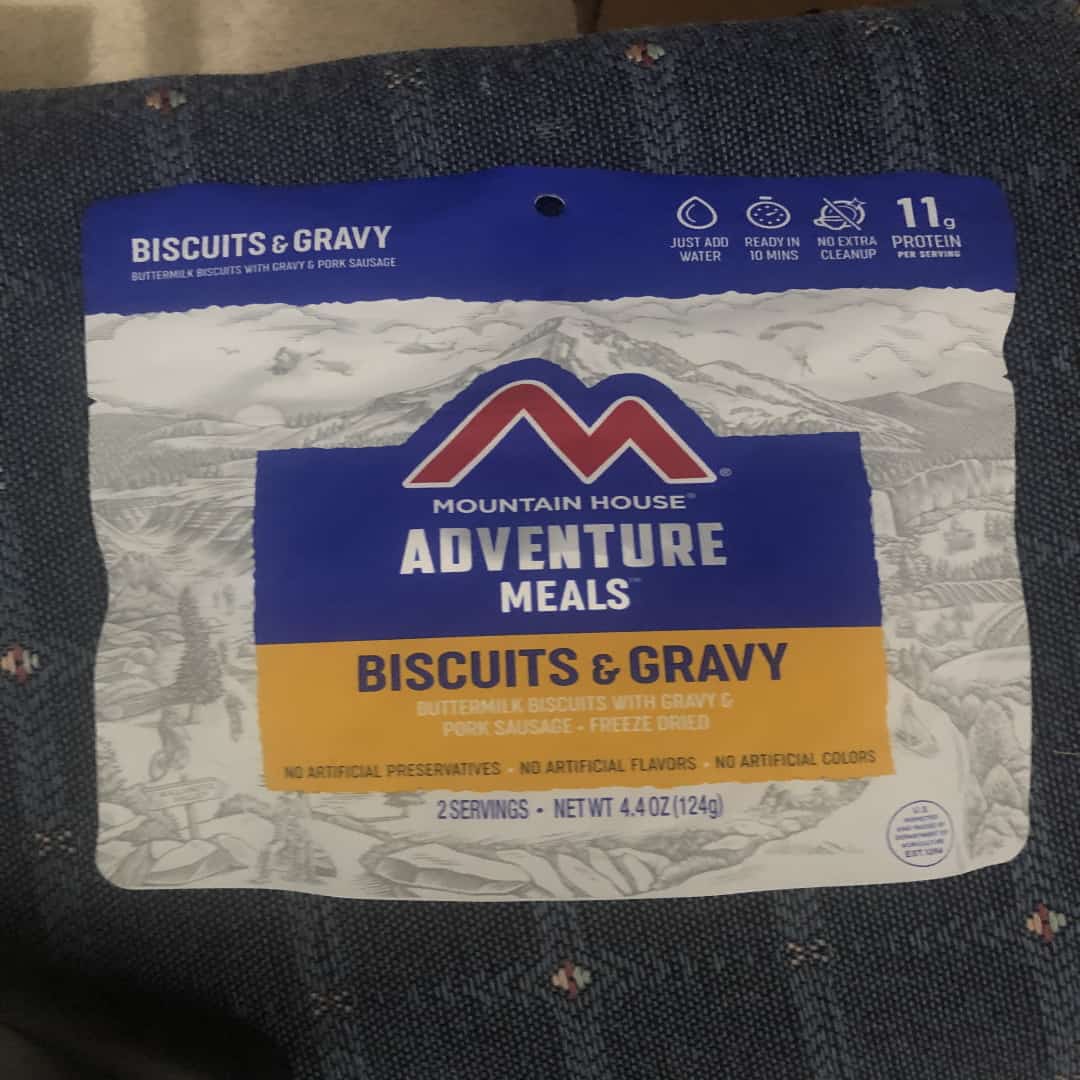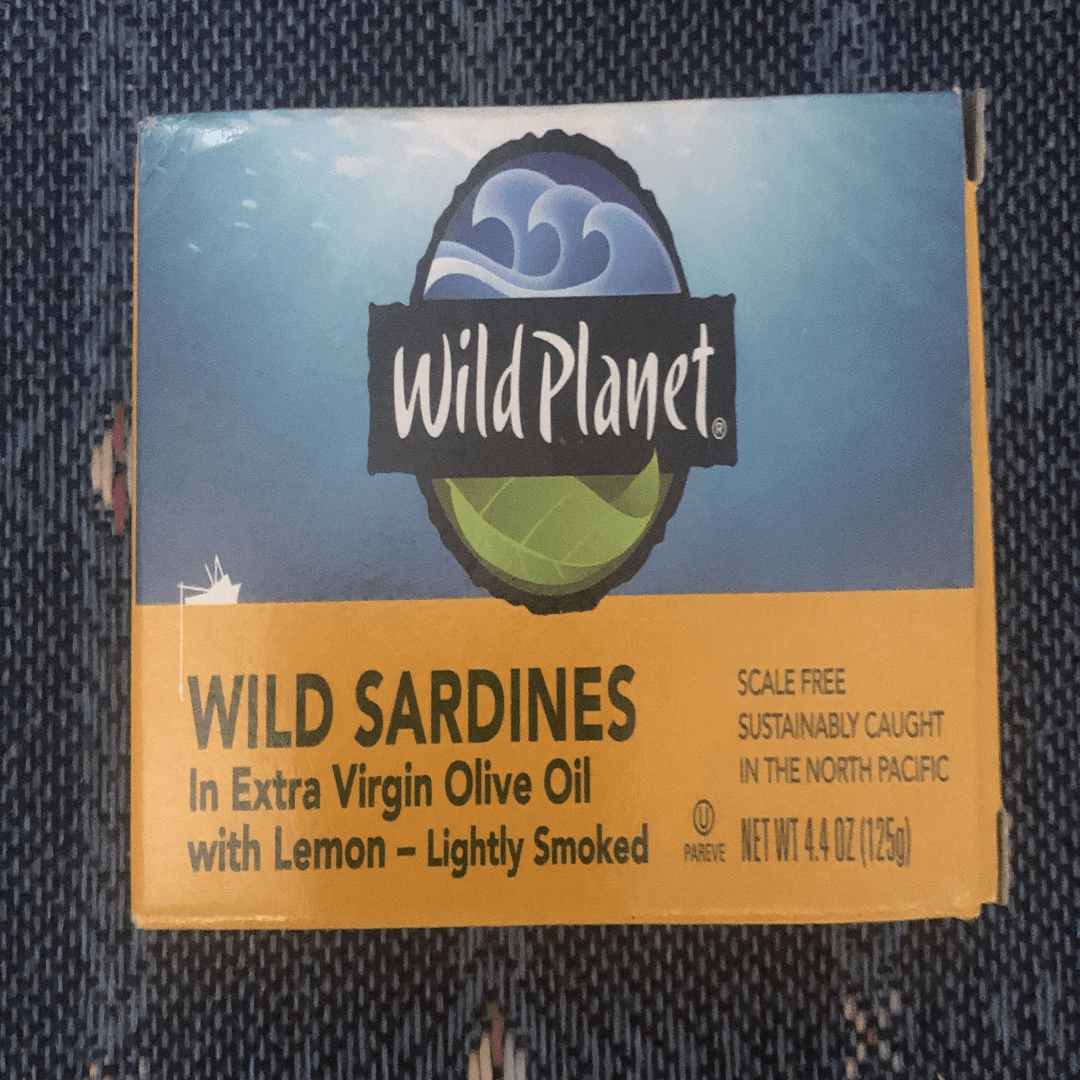Why Calorie Density Is Vital For Hiking
If you click and purchase with one of our links, we earn a commission. Thanks.
Hiking, in particular, backpacking, burns alot of calories and you must carry everything with you. Thus hikers will want foods that provide many calories with as little weight as possible. The last thing you want is to be hungry on the trail while its raining and a cold wind blowing through your clothes. If you’re only out for a day hike a candy bar or meal replacement bar can be sufficient. But for a backpacking trip you will want to carry more substantial meals such as dehydrated meals, canned fish or instant ramen.
Three common types of meals you will find with hikers and backpackers are dehydrated meals, instant ramen noodles and canned meat such as tuna. However, I am listing sardines because they are more nutritious and if you get the oil plus lemon variety there’s no need to mix in anything to make them more palatable.
I always find tuna right out of the can too bland to eat. And I don’t like the premade tuna salad cans. Though I do sometimes take the kits with the Miracle Whip and relish to make my own tuna salad on car camping trips.
This table shows you the weight, calories, protein and whether it requires water or not of these three common meals.
| Food | Weight | Calories | Protein | Protein |
|---|---|---|---|---|
| Dehydrated Meal | 2.2 ounces | 600 | 33g | Yes |
| Instant Ramen | 1.5 ounces | 188 | 5g | Yes |
| Sardines | 3 ounces | 170 | 18g | No |
Dehydrated Meals

A popular option is dehydrated meals. They weigh almost nothing but provide a lot of calories and protein in a small package. However, you must have access to clean water. The food will taste better if you heat the water first but you can rehydrate the meal with cold water.
If you are going to eat the meal in the package, you will also want to pack a long spoon to make it easier to dig into the package.
My favorite (so far) of these meals is the chicken and dumpling. It still surprises me that these meals from Moutain House taste so good. The chicken and dumplings are among the best I have had at home much less while camping.
And considering you get 33g of protein in a package that weighs less than a can of sardines is friggin amazing. Though the packages are bulkier than either ramen or sardines.
Of course, the drawbacks is these are not as cheap as your instant ramen and you need to boil water and then wait for the meal to rehydrate before it’s ready to eat.
Instant Ramen
Another popular option for the trail is a favorite from college, instant ramen noodles. I remember discovering these in college.
They are cheap, lightweight and easy to make though just like with the dehydrated meals, you will need to add water.
Unfortunately, while the noodles will make sure that you don’t go hungry, they’re not packed with nutrition. They are only suitable to make sure you don’t starve while out on the trail.
Sardines And Other Canned Meat

In fifth grade, all I ate every day for lunch was deviled ham. I don’t remember why I became so enamored with deviled ham.
And canned tuna has been a camping staple for many years. If you get tuna packed in oil, you can even BBQ it in the can.
However, I would encourage you to also check out quality sardines. Get them packed with olive oil and lemon. They will have instant flavor, don’t require any water, no extra sugar and because it’s the whole fish additional vitamins.
You can also use the olive oil to season other foods that you have with you and use it as a candle or fire-starter in an emergency.
Also, as I mentioned earlier, they don’t require any cooking or heating of water to make them edible. This is important if you’re trying to eat in the rain or on a night where the campfire just doesn’t want to get lit or you’ve run out of fuel for your gas stove.
You Need Your Energy
It’s important to consume enough calories while taking a long hiking or backpacking trip. You will be walking many miles, often over hills or mountains and carrying a heavy pack. You will likely lose weight and need the calories just to maintain the weight. Plus on a day when it’s pouring down rain while you try to cover the distance for the day, the last thing you want to be is hungry.
You Need The Nutrition
Your body will also need the additional nutrition from the foods. Unfortunately, much of what we tend to eat while hiking is often full of calories but low on nutritional value. This is a side effect of modern food industry which can give us calories but doesn’t always provide us with healthy food.
Of course, we’re not exactly looking for a full-course meal while backpacking either. You’re trying to reduce the weight of your pack and can’t afford to the carry the weight a properly balanced diet requires.
You might consider taking a multivitamin with you to help with immune system support because the last thing you want to do while backpacking is come down with a cold.
You Need The Morale Boost
Another factor to consider when choosing what to eat on the backpacking trip is how to keep your morale up.
When you first start your trip, you will be full of excitement and bounce in your step. But after many miles and unpleasant weather, having a delicious meal is a fantastic reward. It can inspire you to keep going and remind you why you decided to take the trip in the first place.
Thus, make sure to pack hot meals into the kit as well as meals that don’t require any cooking. Because while the sardine requires no water or heating, sometimes after a long day, a warm bowl of noodles is just what you need.
The Diet Might Go Out The Window
Because you are so focused on weight and getting enough calories to be able to keep hiking, whatever diet plan you might be on, might be hard to keep up with on the trail.
This doesn’t mean it’s not possible to keep to a diet on the trail, it’s just that you will possibly need to do more work to do so.
In particular, if you’re sticking to a plant-based diet. I’m not an expert on this (heck, I try to avoid vegetables) but I know veggies are not caloric dense. You will most likely be sticking to nuts and fruit.
How To Choose What To Bring
There are many things to consider when choosing which foods to bring along on your hiking or backpacking trip.
Every weekend I try to get a hike in at one of our local lakes here in Dallas. For my morning walk, I will only carry a meal-replacement bar in case of absolute emergency. If I’m meeting friends then I will take a lunch with me such as a sandwich.
If you were to go on a backpacking trip, you will want to take more than that. And you will make your decision based on four different factors:
How much does it weigh. Weight is everything for a backpacker. Even if you are not trying to be an ultralight backpacker, you will still want to keep track of how much weight you are carrying.
Next you are going to consider the cost. We all have food budgets and backpacking is no different. This is why instant noodles remain popular with backpackers, they’re super-cheap.
Next we’re going to consider taste. There’s no reason to eat foods you don’t like to eat on the trail. So make sure you pick foods you like to eat. And if you’re getting a dehydrated meal, you will decide based on the types of meals you like to eat.
Finally, we’ll worry about nutrition. And being on a backpack trip, this really means calories. The food we eat while on a trek are not necessarily going to be a full wholesome meal. We’re looking for the maximum calories at the lightest weight at the price we can afford.
Thus you might be eating more junk-food than you would at home but this won’t be your full-diet in the future. And you’re probably burning lots of calories that will offset the extra calories you are consuming.
Don't Forget The Snacks
When going on your hike, don’t forget the snacks. This could include chips, candy, gum, jerky and cookies. Just remember, you do have to carry this food too!
You might also like our article on keto-friendly snacks for hiking.